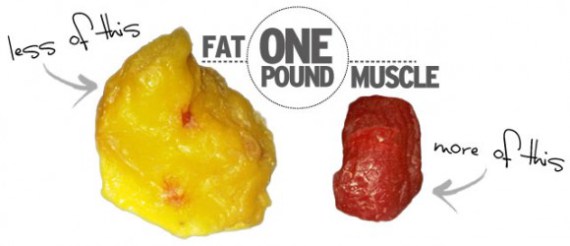
When we talk about weight loss we almost automatically assume that Weight Loss equals Fat Loss. Unfortunately, it is not so straightforward. Let's take a look at several examples:
Example 1: A person of an average built who decides to diet and skip the exercise will typically lose 60/40 percent ratio of fat vs lean body mass.
NOTE: keep in mind that Lean Body Mass is EVERYTHING but fat, meaning it includes your bones, water, and organs.
Why not 100% fat, you ask?
Well, muscle is a very metabolic tissue, meaning it requires a lot of energy to work. When you are in a caloric deficit your body is looking for the ways to become more efficient (spend less energy) to perform the given tasks. The less you move the less energy you spend. By excluding exercise you give your body zero reasons to hold on to muscle mass. What for? - You are not using it anyway.
Example 2: Now let's take the same person who decides to perform RESISTANCE training (note I didn't say cardio) while maintaining a caloric deficit. This scenario would typically lead to the 80/20 percent ratio of fat loss vs lean body mass.
So what are the reasons behind the higher fat loss when resistance training is present?
Our bodies love glucose because it's the easiest source of energy. When you diet your blood glucose levels go down and your body wants to spare as much blood glucose and muscle glycogen as possible by burning body fat instead. Even during ketogenic diet body converts some of the amino acids into muscle glycogen so it can later use it during exercise.
Resistance training is causing micro-trauma in our muscles. In order to repair it, the body shifts the tasks from catabolic (tissue break down) to muscle repair. In other words, by doing resistance training we create a signal to retain more muscle mass by emphasizing the remodeling of the muscle.
In general, the less experience you have with resistance training and the more fat you have to lose the higher is the percentage of fat loss would be. In some cases, it could be a 100% fat loss. This is because newbies get a stronger signal of muscle damage and repair, as well as higher body fat percentage is less likely to trigger catabolism.
On the other hand, the closer you are to your genetic potential as an athlete or competitive bodybuilder the harder it is to lose the extra fat, partially because there is not much fat to lose in the first place; partially because the muscle growth potential diminishes over time.
Hope this clears some confusion and encourages you to include resistance training in your fat loss journey. Let me know if you have any questions and I'll talk to you soon!
this is it! I got same view on this topic!
Downvoting a post can decrease pending rewards and make it less visible. Common reasons:
Submit
Much-needed information in a world who has been taught calorie restriction as the only way.
Any advice for these athletes?
Downvoting a post can decrease pending rewards and make it less visible. Common reasons:
Submit
The true answer is anabolic-steroid. otherwise you will lose perfomance, muscle mass. You must be genetic freak to escape from that but this is like 0,1 % chance to get this. I know this maybe sounds ridiculous but this reality.
Downvoting a post can decrease pending rewards and make it less visible. Common reasons:
Submit
Fat loss is not going to be affected by the genetic potential of muscle gain. Fat loss can be achieved with correct manipulation of diet and physical activity at any stage. When it comes to muscle gain once you have reached genetic potential, of course, there is not much you can do aside from taking anabolics. But very few people will ever reach their true genetic potential. Those few who do will most likely be at the top of the athletic chain and won't be bothered by such question anyway :)
Downvoting a post can decrease pending rewards and make it less visible. Common reasons:
Submit